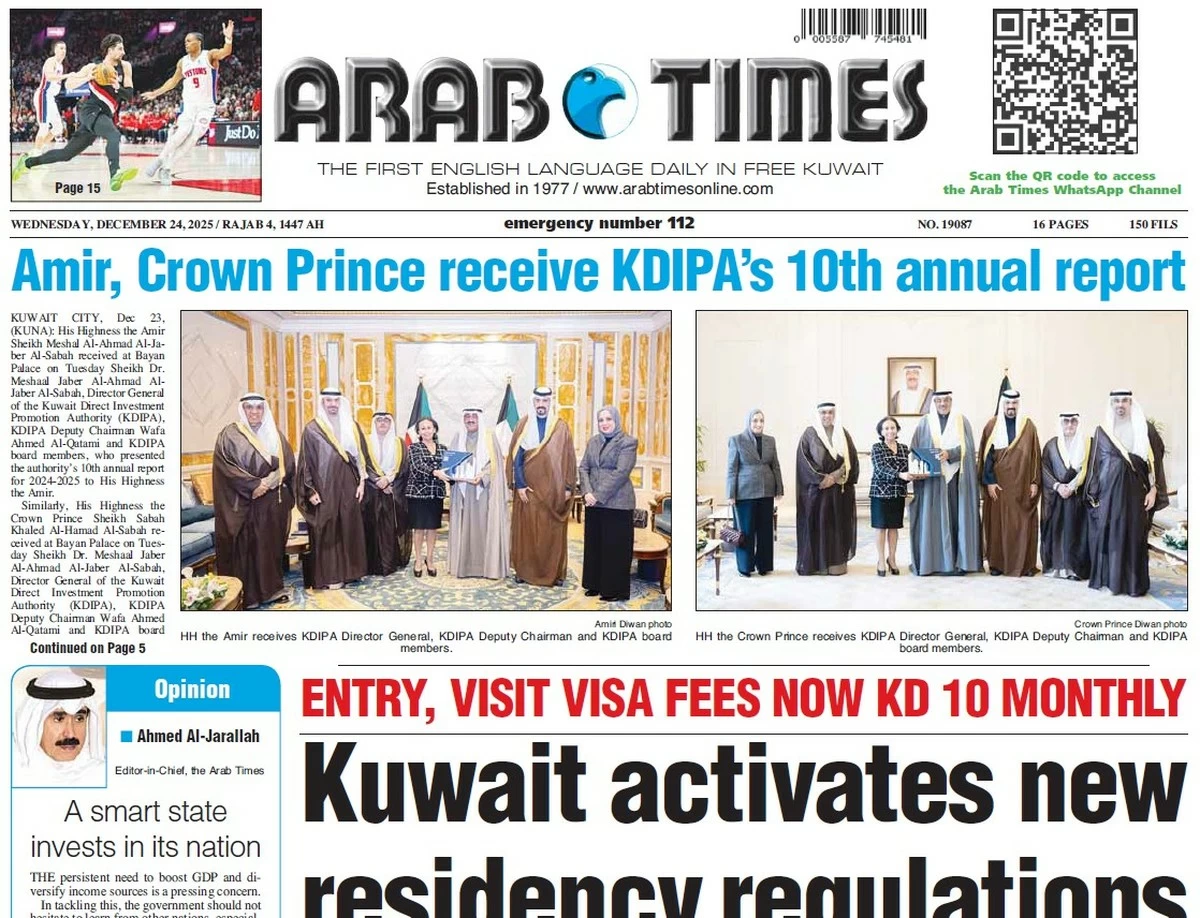14/08/2021
14/08/2021
KUWAIT CITY, Aug 14: The Kuwait Investment Authority (KIA), estimated to have assets worth about $ 600 billion, has been suffering from a confl ict between the executive and legislative authorities since the term of its board of directors expired three months ago and with the non-approval of a new term so far for the nine-member board of directors, reports Al-Anba daily. This was highlighted in an analytical report issued by the “Bloomberg” news agency, in which it said the paralysis in decision-making and policies prompted international credit rating agencies to issue warning of the possibility of rating downgrades, and left the government striving to pump cash. It explained that Kuwait, despite its enormous wealth, has become unwilling to bear external shocks such as the COVID- 19 pandemic. All this is only part of a deep crisis, and this impasse prevented the state from borrowing and left it barely able to pay salaries for the employees of the public sector.
Dispute
The dispute is also holding back investment and economic reforms, including welfare state reform that the government says is needed to end the eight consecutive years of budget deficits. Abdullah Al-Shami, a Kuwaiti businessman and economist who owns two companies specialized in medical and financial services, said, “The indications are negative concerning these developments. It is a new low level. I can justify this by saying we have two economic agendas - the first is heading towards new liberal policies, and the other wants to keep the welfare system as it is”. Kuwait’s economy was once thriving at the forefront of the Arabian Gulf regimes, but Kuwait has long been surrounded by neighbors who strive to secure their seats on the international stage. Dubai has established itself as the business capital of the region. His Royal Highness Prince Mohammed bin Salman, the Saudi Crown Prince, has embarked on an ambitious plan to reshape the economy.
Khaled Al-Ansari, a partner in a law firm and in three family companies, said, “People in the private sector are suffering and trying to stand firm, but the government does not have a strategy. The future is unimaginable. On the other hand, we can see Dubai and Saudi Arabia trying to develop and attract businesses to them. They may be able to achieve success in a way better than us, based on what is being done now”. The National Assembly paid little attention to a draft law that would allow the government to issue international bonds to finance the deficit. It opposed any reallocation of the government funds and aid, despite the fact that salaries and subsidies account for about three-quarters of the governmental spending. The approval of the National Assembly is necessary for most of the government’s major initiatives in its economic program, including the introduction of Value-Added Tax and taxes to increase non-oil revenues, in addition to a plan to reconsider governmental subsidies and privatize some stateowned assets. These initiatives have been hitting a dead end throughout the past decade. With a deficit of $ 3.3 billion per month, the government resorted to quick reform measures to meet its financial obligations last year when oil prices fell and the COVID-19 pandemic spread. If the situation continues, Kuwait will record a cumulative budget deficit of $ 184 billion over the next five years. Also, the Future Generations Fund, the assets of which are estimated at about $ 600 billion and are managed by the Kuwait Investment Authority, was designed to be a savings vessel for life after oil. However, it is impossible to withdraw from it to a large extent without the approval of the National Assembly. As for the General Reserve Fund, which is used for governmental spending and is managed by the Kuwait Investment Authority as well, it faces some challenges that can be overcome if the oil price rises. The economy fell by about ten percent in 2020, bringing about the worst situation compared to the neighboring Gulf economies.


